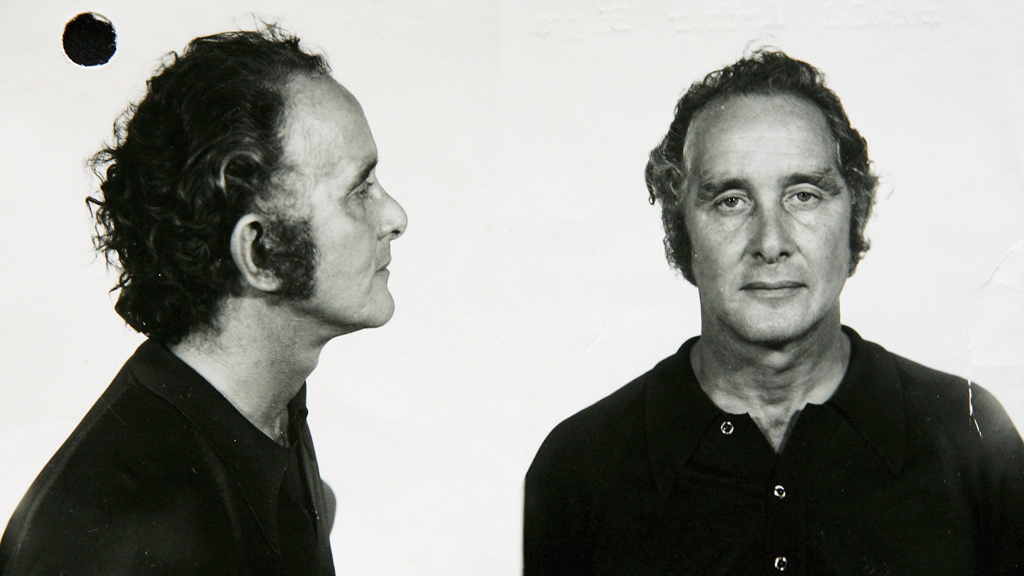Great train robber Ronnie Biggs dies aged 84
Ronnie Biggs, who won worldwide notoriety after escaping prison following the Great Train Robbery, has died aged 84.
Biggs was being cared for at the Carlton Court care home in East Barnet, North London, and died on Wednesday morning.
He gained notoriety 50 years ago as one of an 11-member gang that tampered with railway signals and stopped a Royal Mail night train, making off with £2.6m ($4.2m), equivalent to about £40m in today’s money.
Biggs was caught after the robbery and received a 30-year jail sentence but escaped from prison and spent 36 years on the run, leading a playboy lifestyle in South America.
He finally surrendered to British police in 2001 but was freed in 2009 on health grounds.
He had become increasingly frail in recent years after suffering several strokes and was last seen in public at the funeral of fellow great train robber Bruce Reynolds in March.
Train robbery
On August 8, 1963, the robbers, masterminded by Reynolds, stopped the Glasgow-Euston overnight mail train and carried out the biggest robbery of its time.
The Travelling Post Office train, pulling what was known as a High Value Package carriage containing registered mail and large quantities of money, stopped at a red light at Sears Crossing near Leighton Buzzard, unaware that the signal had been tampered with.
Fifteen robbers then took control of the train, coshing the driver Jack Mills until he agreed to drive the train half a mile to Bridego (or Bridge 27) where they then relieved the Post Office of 118 mailbags containing over £2.5m.
The train was driven a mile and a half to Bridego Bridge where the gang unloaded £2,631,684 in used notes.
Mills never fully recovered from the ordeal and died a few years later.
The first arrests came on the 16 August, Reynolds along with Jimmy White and Buster Edwards remained at large for some years.
The captured robbers and accomplices were tried at Aylesbury Crown Court and on 26 March 1964 and thirteen received sentences of between 20 and 30 years.
One of those jailed, William Boal, died in prison in 1970. Police later admitted that though he was a friend of one of those convicted, Boal had taken no part in the robbery and his conviction was regarded as a miscarriage of justice.
Edwards and White were caught and imprisoned in 1966 while Reynolds was arrested in 1968.
All had spent most of their money on the run by the time they were apprehended. Wilson in 1964 and Biggs in 1965, appalled at the length of their sentences, escaped from prison.

Watch: the Great Train Robbery 50 years on
On 8 July 1965, Biggs made a daring escape from Wandsworth prison. While other prisoners created a diversion in the exercise yard, Biggs scaled a wall with a rope ladder and dropped onto a furniture van parked alongside.
After a brief stopover in Paris for £40,000 worth of plastic surgery to change his appearance, he travelled to Australia, entering the country on a false passport using an assumed name.
After having plastic surgery, he lived as a fugitive for 36 years first in Australia then Brazil, where he fathered a son Michael, who became the key to him being allowed to stay in the country and not face extradition.
Biggs’s money ran out and he traded on his notoriety to scrape a living.
Michael, who now lives in England, was not immediately available today but had left a message on his phone saying: “For obvious reasons I’m not taking many calls today.”
His health deteriorated in 2001 and he returned to the UK voluntarily mainly to get the better care available in prison and on the NHS.
He was freed in 2009 on “compassionate grounds” by then Justice Secretary Jack Straw, who said he was not expected to recover.
Biggs was last seen in public at the funeral of gang leader Reynolds in London in March when he made a ‘V’ sign at the waiting press.
Biggs was among 200 well-wishers who paid tribute to Reynolds, who died just months before the 50th anniversary of the infamous heist.
Watch below: the ITN news report from the Great Train Robbery of 1963